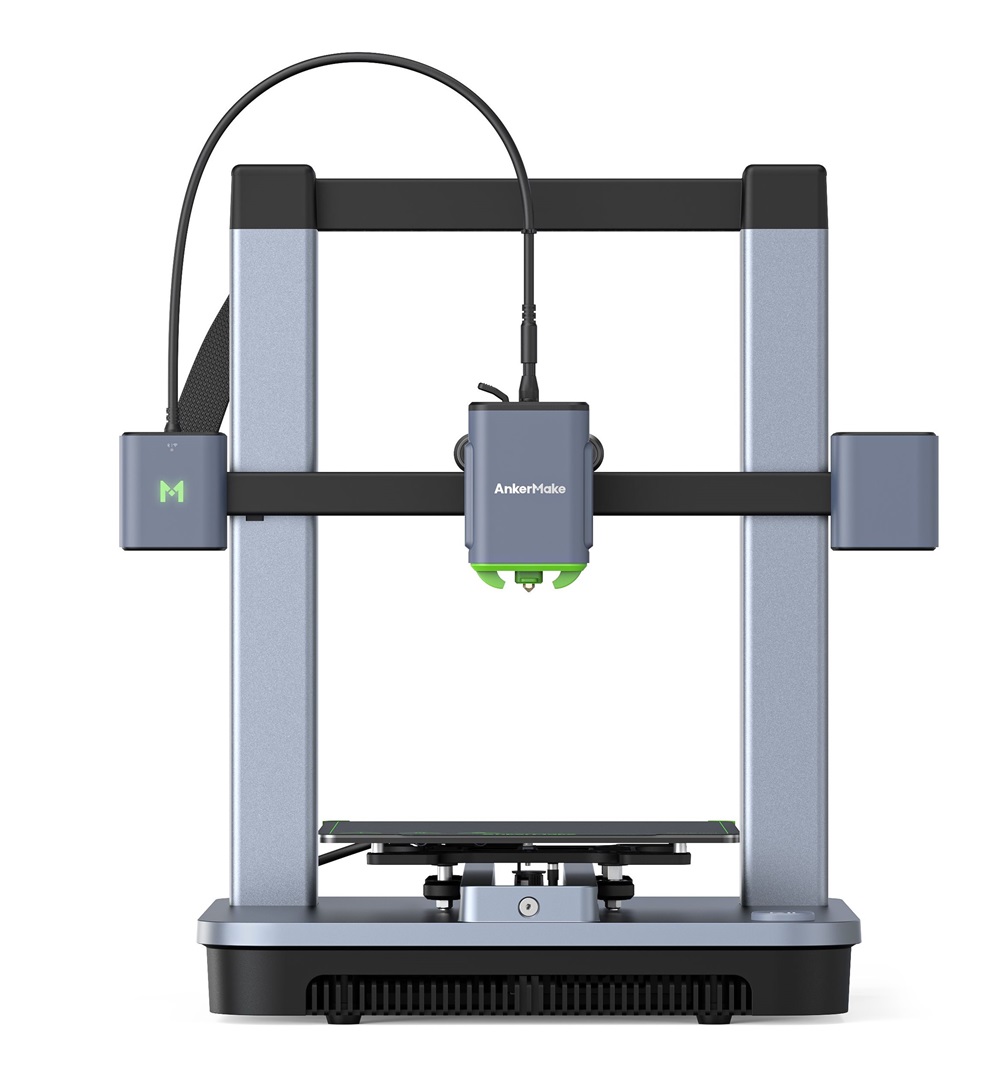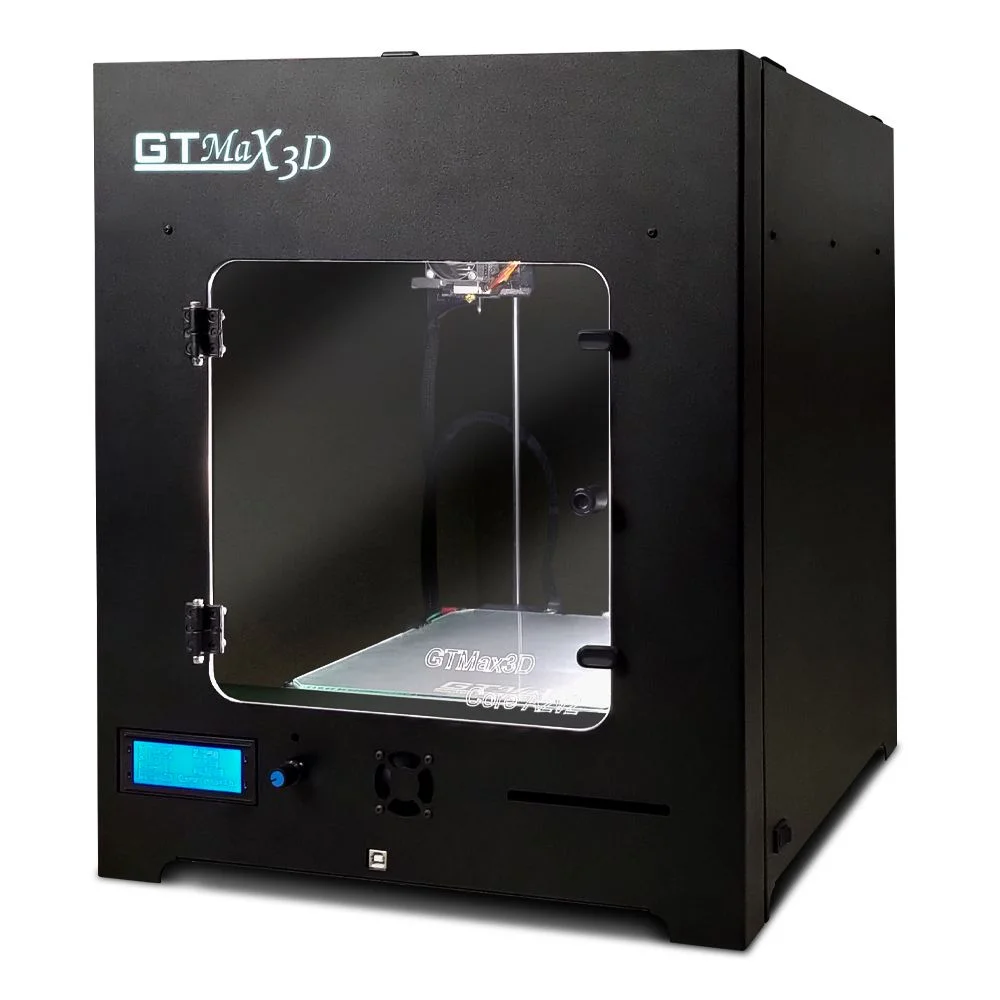Compare M5C vs Core A2V2
Comparison between the best 3D printers
Choose the best 3D printer at the best price. The cheapest 3D printers are here.
Buy a 3D printer here with 3D Fila.
 |
 |
|
| Model | M5C[BUY M5C] |
Core A2V2 |
| Printing Material | Filament | Filament |
| Buy Filament for AnkerMake M5C | Buy Filament forGTMax Core A2V2 | |
| Estimated price | $399,00 | $684,00 |
| Manufacturer | AnkerMake | GTMax |
| Release Year | 2023 | 2019 |
| Print Volume [mm] | 220x220x250 | 220x220x240 |
| Printer Size [mm] | 466x374x480 | 425x460x512 |
| Weight [kg] | 9,6 | |
| Power Loss Recovery | YES | YES |
| Enclosed printer | NO | YES |
| Bed Leveling | Automatic | |
| Filament End Sensor | YES | YES |
| Bed type | Heated | Heated |
| Power supply system | Direct Drive | Bowden |
| Standard nozzle | 0,4 | 0,4 |
| Maximum Nozzle Temperature [°C] | 300 | 295 |
| Maximum Bed Temperature [°C] | 100 | 135 |
| Maximum printing speed [mm/s] | 500 | 150 |
| Filament holder | YES | YES |
| Camera for supervision | NO | NO |
| Recommended filaments | PLA, PETG, TPU, ABS, PA, PLA-CF, PETG-CF, PA-CF | PLA, PETG, Tritan, Flex, ABS |
| Recommended slicers | AnkerMake Studio (macOS, Windows), Simplify3D, Ultimaker Cura, PrusaSlicer | Cura, Simplify, Slic3r, IdeaMaker |
| Maximum Resolution [mm] | 0,1 | 0,05 |
| Processor | ||
| Display | Mono | |
| Power Supply | 350 W | |
| Connectivity | Wi-Fi, USB-C, Bluetooth | SD / USB |
| Operating systems | Windows, Linux e Macbook | Windows, Mac, Linux |
| Date of registration in the system | 2024-09-11 | 2022-11-12 |
| Release date | 2023 | 2019 |
| Extra features | The AnkerMake M5 printer stands out for its impressive print speed, reaching up to 500mm/s. It features AI print monitoring, an integrated camera for creating timelapses, auto-leveling bed with pressure sensor, direct extruder, flexible PEI-coated build plate, and Wi-Fi and USB-C connectivity. Assembly is quick and easy, and the printer is designed to deliver high print quality and ease of use. | The GTMax3D ProCore A2v2 is a compact and robust 3D printer with a printing area of ??220 x 220 x 240 mm. It offers high print quality, ranging from 0.05 mm to 0.32 mm. Its features include automatic filament detection and changing, travel speed of up to 300 mm/s, and a heated aluminum bed with a glass top. It has automatic bed leveling with 16 points and an all-metal hotend that reaches up to 298°C. The printer has a carbon steel frame with electrostatic painting, is automatic bivolt and has connectivity via USB and SD card. The Bowden system and core xy kinematics complete its advanced features. |
| Support for multiple colors and materials (AMS and CFS) | NO | NO |
Notes * |
||
| Cost-benefit | 7 / 10 | 6 / 10 |
| Hardware | 3.2 / 10 | 2.5 / 10 |
| Tela | . | . |
| Print volume | 3 / 10 | 3 / 10 |
| Performance | 4 / 10 | 1 / 10 |
| [BUY M5C] |
Conclusion |
| In conclusion, both the AnkerMake M5C and the GTMax Core A2V2 3D printers offer unique advantages catering to different user needs, but they differ significantly in aspects such as price, speed, and overall ease of use. The **AnkerMake M5C**, priced more affordably, stands out primarily for its impressive maximum printing speed of 500 mm/s, making it an excellent choice for users looking for quick results. Its features, such as automatic bed leveling, direct drive system, and various connectivity options, contribute to a user-friendly experience. The M5C is particularly well-suited for beginners and hobbyists, providing high-quality prints without sacrificing ease of assembly or operation. On the other hand, the **GTMax Core A2V2**, despite being priced higher, offers a robust built quality with an enclosed design and a slightly better maximum layer resolution. Its Bowden extruder system, while potentially less favorable for flexible filaments, is complemented by advanced features like 16-point bed leveling. This printer may appeal more to experienced users seeking precision and stability in their prints, especially for more complex tasks. Weighing the cost-benefit analysis, the AnkerMake M5C scores higher on overall value, making it an attractive option for those looking to jump into 3D printing without a significant financial commitment. The GTMax Core A2V2, though a solid printer, may be best suited for users who prioritize build quality and have a higher budget. Ultimately, the choice between the two will depend on individual priorities, whether that's speed, build quality, or budget constraints. |

